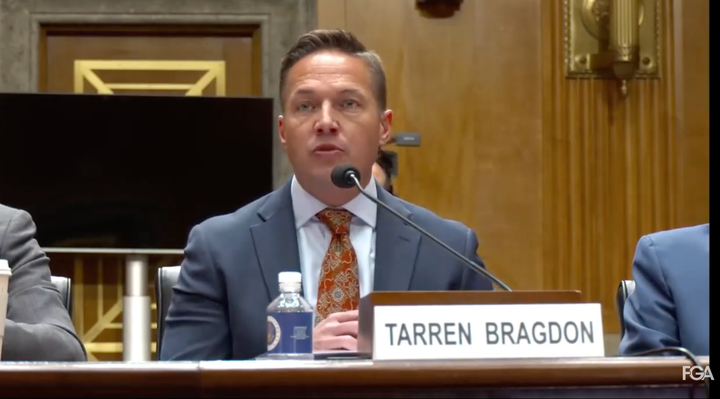In 2015, then-deputy commissioner at the Food and Drug Administration Robert Califf worked closely with pharmaceutical and medical device lobbyists on an industry-backed bill designed to accelerate the approval process for new drugs. Califf attended frequent meetings with individuals from Johnson & Johnson and other drug companies, as well as Pharmaceutical Research and Manufacturers of America (PhRMA) CEO Setphen Ubl, then at trade group AdvaMed, helping to jointly write legislative text that would become part of Republican Rep. Fred Upton’s (Mich.) 21st Century Cures Act, according to a report from InsideHealthPolicy based on a review of internal emails and documents.
When the 21st Century Cures Act passed the House, PhRMA’s Ubl released a statement praising it for including “reforms which enhance the competitive market for biopharmaceuticals and drive greater efficiency in drug development.” The bill relaxes some methodological standards for drug trials, for example by setting up a way for drug companies to submit “real world evidence” about their products’ safety and effectiveness, rather than information from double-blind randomized clinical trials.
Watchdog group Public Citizen blasted Claiff’s ties to industry in 2016, as he was facing confirmation to become FDA commissioner. “The attitudes he has developed over his decadeslong history of extensive financial ties to pharmaceutical and medical device companies leave him all too willing to promote the interests of regulated industries over those of public health and patient safety,” the group said in a blog post. “These entrenched attitudes do not befit the position of FDA commissioner.”
After leaving the government in 2017, Califf went to work as a consultant and compensated board member for several health industry companies including Cytokinetics, Bitterroot Bio, Centessa Pharmaceuticals, and Boehringer Ingelheim Pharmaceuticals. Since 2017, he has also worked as an advisor for Google and Alphabet’s life sciences research company Verily, according to his financial disclosure. He also returned to a job he held before his stint in the Obama administration at Duke University, where he told Time in 2015 that his salary was contractually underwritten by pharmaceutical companies including Merck and Bristol-Myers Squibb.
Califf has also amassed millions of dollars worth of pharmaceutical company stocks. His holdings include shares worth up to $500,000 in both Amgen and Bristol-Myers Squibb, up to $250,000 in Gilead Sciences stock, more than $2 million in Cytokinetics stock and options, and up to $5 million in Centessa stock options.
Now, Califf may be about to spin through the revolving door once again and take a job as the commissioner of the FDA, a position he held for nearly a year during the tail end of the Obama administration. President Biden nominated Califf in November for the position, and a vote by the Senate Health, Education, Labor and Pensions (HELP) Committee to send his nomination to the Senate floor is scheduled for Jan. 12.



